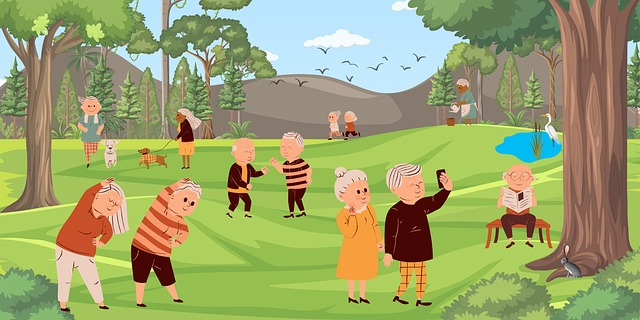A skilled lawyer is essential in navigating complex legal landscapes, especially regarding sexual assault cases involving the elderly in nursing homes. They provide expert guidance, ensuring clients' rights are protected and favorable outcomes achieved. In Cleveland, reporting such incidents involves contacting local law enforcement, followed by consultation with a specialized lawyer for civil claims. This collaborative effort includes healthcare professionals, facility administrators, legal aid, and counseling services to address trauma, hold perpetrators accountable, and create a safer environment for elderly residents.
“In Cleveland nursing homes, recognizing and reporting elderly sexual assault is a critical step in ensuring safety and justice. This comprehensive guide delves into the intricate process of identifying potential abuse, understanding legal obligations, and navigating the system. From recognizing subtle signs to connecting victims with support, we explore each vital aspect. Additionally, learn about the roles of healthcare professionals, family members, and lawyers in holding institutions accountable. Find out how you can make a difference and protect our elders.”
Understanding Elderly Sexual Assault in Cleveland Nursing Homes
Recognizing the Signs and Symptoms
Recognizing the signs of sexual assault in elderly residents is crucial, especially in nursing homes where vulnerability is a significant factor. Many victims may not have the capacity to communicate what has occurred due to cognitive impairments or other health issues. They might exhibit unusual behavior changes such as increased anxiety, withdrawal from social interactions, or sudden changes in their usual patterns. Physical signs can include unexplained injuries, bruising, or signs of sexual contact. If you suspect any form of abuse, it is essential to act quickly.
Seeking immediate assistance from a lawyer specializing in elderly care abuse cases is recommended. They can guide you through the legal process and ensure the victim receives the necessary support. A timely report to local authorities and the nursing home administration is vital to initiate an investigation and hold the perpetrators accountable.
The Legal Process of Reporting and Filing a Claim
When reporting elderly sexual assault in Cleveland nursing homes, understanding the legal process is crucial. The first step involves contacting local law enforcement immediately to file a formal report. This documentation is essential for any potential legal action and ensures that evidence is preserved. A lawyer can guide you through this initial phase, providing expert advice tailored to Ohio’s legal requirements.
After filing the report, it’s important to consult with a lawyer who specializes in nursing home abuse cases. They will help you navigate the process of filing a civil claim against the facility and its responsible parties. This involves gathering evidence, interviewing witnesses, and preparing legal documents. A skilled lawyer ensures your rights are protected and maximizes compensation for any damages incurred by the victim.
Roles of Key Stakeholders and Support Resources for Victims
When reporting elderly sexual assault in Cleveland nursing homes, several key stakeholders play crucial roles in ensuring justice and support for the victim. These include healthcare professionals, facility administrators, law enforcement, and lawyers specializing in elder abuse cases. Healthcare staff members are often the first to observe suspicious behavior or injuries, making them vital witnesses. They must report their concerns promptly to administrators who are responsible for initiating investigations and taking appropriate disciplinary actions.
Victims of sexual assault within nursing homes require a network of support resources. This includes legal aid from a lawyer experienced in handling elder abuse cases, who can guide victims through the legal process, advocate for their rights, and ensure they receive justice. Counseling services and emotional support are equally important to help victims cope with trauma and rebuild their lives. These resources collectively contribute to creating a safer environment for elderly residents and holding perpetrators accountable.




